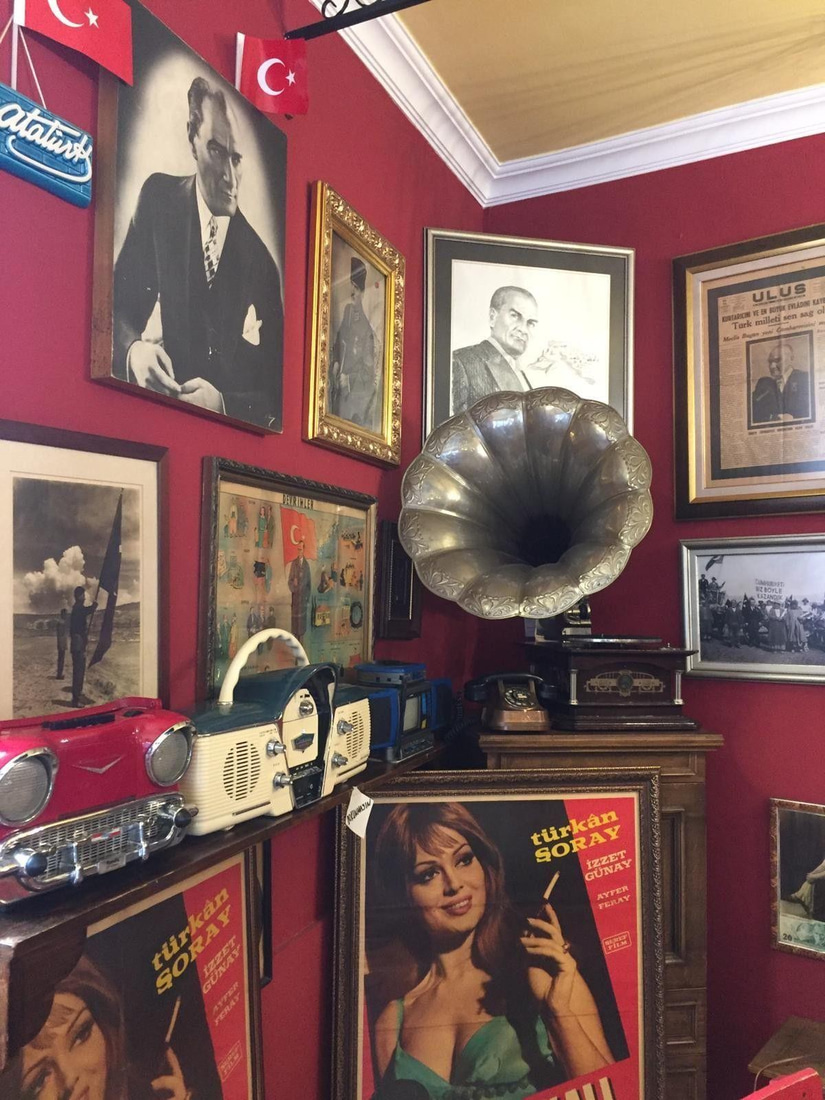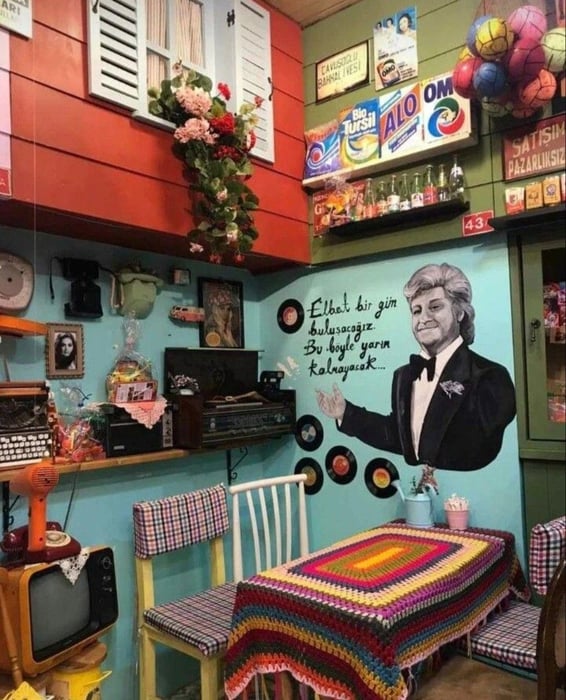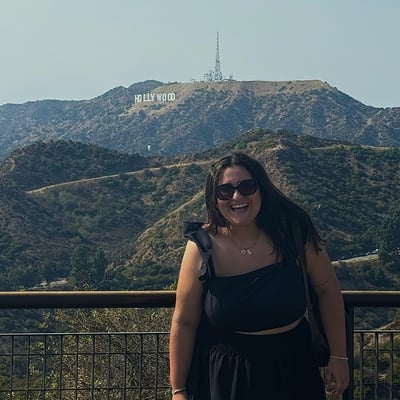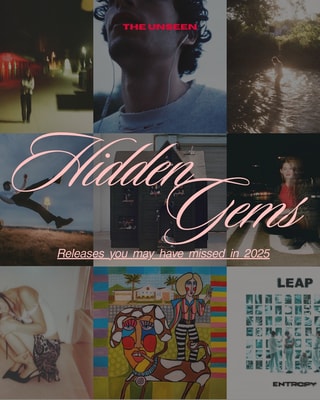From Resentment to Appreciation: How Being a Diaspora Child Shaped My Musical Identity

But does growing up just change your body... or also your soul?
Growing up as a child of immigrants often means existing between two worlds: one is rooted in the culture of your parents, and the other in the society you’re born into. It’s a balancing act that can shape everything from the way you speak to the way you eat, but for me, one of the most profound influences was my relationship with music.
I grew up in a household where my parents played old Turkish songs on the radio. At the time, this felt like an intrusion into the world I was trying to fit into. Whether it was long car rides or lazy Sunday mornings at home, they would fill the air with the melancholic sounds of Turkish ballads or folk music that seemed worlds apart from what my friends or their parents were listening to. Songs like Tükeneceğiz by Sezen Aksu often echoed through the house, creating vivid landscapes of nostalgia that I was too young and too resistant to fully understand.
I wanted to hear what everyone else’s parents were playing. Whether that be the latest German pop or English hits topping the charts. At school, my friends would talk about songs by famous Western artists, and I longed to join in on those conversations. When my parents played their Turkish classics, it felt like a reminder that I was different and didn’t quite fit into the world I was born in, which seemed so vast and untouchable.
The Struggle of Living with Different Cultures
Looking back now, I realize that the rejection of Turkish music was part of a broader internal struggle I was facing as a diaspora child. I was constantly navigating the push and pull of two cultures: the one I inherited from my parents and the one I was growing up in. For a long time, it felt like I had to choose one over the other.
The more I embraced German and English music, the more I felt I was drifting away from the world of my parents. I enjoyed the excitement of discovering new songs, but there was always a lingering frustration: I could never get my parents to appreciate the songs I had grown to love. No matter how many times I tried to share my latest favorites, their reactions were lukewarm at best. It was as if we were speaking two completely different musical languages.
This created an odd tension in me. While I felt like I was broadening my horizons and connecting with the culture around me, my parents’ reluctance to engage with my music felt like another barrier between us. I remember feeling frustrated. Why couldn’t they see what I saw in this music? Why couldn’t we share this part of my world? I was trying so hard to fit into theirs at times, but it didn’t seem to work the other way around.
This dynamic only deepened my eagerness to belong to the culture outside my home, and for a long time, I pushed Turkish music into the background of my life. It was easier to embrace what felt normal and cool in the world I was growing up in, even if it meant shutting out the music of where I came from.
Rediscovering Old Songs
Something strange happened as I grew older, though. Slowly but surely, the music I once resented started creeping back into my life. It wasn’t an overnight transformation but more of a gradual unfolding.
It began with nostalgia. As a teenager, I started finding comfort in the songs I had grown up with, even if I had dismissed them at the time. Songs by Ayla Dikmen and Ayten Alpman suddenly became a comfort on lonely evenings. At first, I listened ironically, chuckling to myself when a familiar Turkish song popped up on Spotify. But soon, I realized I wasn’t just laughing; I was genuinely enjoying the music.
By the time I hit my early twenties, I had fully embraced it. Songs that once felt alien now felt like home. The melodies, instruments, and voices that I had spent years pushing away began to hold deeper meaning. I started to understand the stories behind the lyrics, the rich cultural history embedded in each note. What used to feel outdated now felt timeless. Turkish music was a connection to my past, to my family, and to a side of me I had been neglecting.
But it didn’t stop there. My musical taste expanded, branching out into genres my parents never listened to. Turkish rock bands like Duman, Mor ve Ötesi, and Adamlar became my personal favorites, a part of my identity that I didn’t necessarily share with my family but that felt uniquely mine. These artists spoke to a different side of me, blending the cultural roots I had rediscovered with the individuality I was carving out for myself.
Embracing my Identity

I have to be honest. Being a part of two cultures used to feel like a burden I couldn't faster get away from... but now all I can say is that it feels like a gift. The ambiguity of my identity allows me to appreciate music in a way I never could before. I can still love the German and English songs that were a huge part of my upbringing, but I’ve also found a deeper appreciation for the Turkish music that I had once resisted. Rather than seeing these different musical worlds as two opposites, I now see them as complementary parts of who I am.
My music taste has become so wide-ranging that even my closest friends can’t pin it down. I’ll go from Kendrick Lamar, Tyler the Creator, or Frank Ocean straight to the heartbreak and raw emotion of Sezen Aksu or Müslüm Gürses. Some days, I’m singing along to Taylor Swift, Billie Eilish, or Olivia Rodrigo, and other days, I’m blasting Turkish rock from Duman or Mor ve Ötesi. Then there’s German indie and rap thrown into the mix, too. My playlists are all over the place, but they reflect exactly who I am. Every experience that I ever had, every culture that I have ever been part of, and everything that I am.
Going Back to the Roots
If you guys haven't figured it out yet, I like to talk about this topic a lot. That's why I unintentionally figured out that I wasn’t the only one who felt this way. Many children of immigrants go through a similar journey, where the music of their heritage becomes more meaningful as they age. It’s almost like a small phenomenon. This cycle of rejection and rediscovery is so common among diaspora children.
There’s something universally relatable about this experience, isn’t there? As children, we often push away the things that make us feel different because we want to fit in. But as we grow older, we start to appreciate the distinctiveness that comes with our backgrounds. We begin to see the value in where we come from or where our parents came from, and for many of us, music is one of the most powerful ways to reconnect.
Today, I see music as a link. It’s a way to navigate the complexities of my identity as a diaspora child. When I hear Turkish music, it reminds me of home. Not just my physical home but the home my grandparents carried with them when they left everything behind and moved to a new country to give their children a better chance at life. It’s a way to stay connected to them.
In the end, the music I once rejected is now one of my greatest sources of comfort. It’s a reminder that our identities are fluid and constantly evolving. And as I continue to grow, I know my relationship with music will keep evolving, just as it has over the years. If I ever have children of my own, I hope to approach their musical journey with more understanding. Embracing both the songs of their world and the ones of mine, bridging the gap between generations. After all, isn’t that what music should be all about?
WRITTEN BY

Ilayda
Most things in my life come back to observation; the way people move through rooms, the silence after a song ends, the stories hiding in things we don’t say out loud. I’m drawn to the in-between: the almosts, the not-yet's, the moments that feel like they’re about to become something. That’s where my work sits. Somewhere between clarity and the parts I haven’t figured out yet.
FIND US ON:



